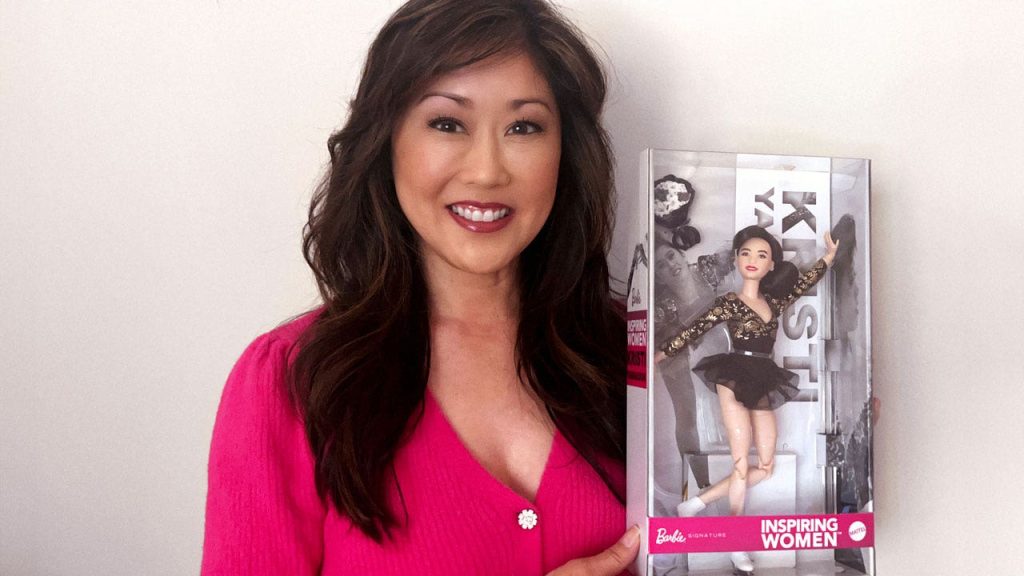Kristi Yamaguchi, a decorated Olympian figure skater, was honored to be immortalized as a Barbie doll for Barbie’s “Inspiring Women Series,” in celebration of Asian American and Pacific Islander Heritage Month. This doll is a detailed replica of Yamaguchi’s outfit and look from her gold medal-winning performance at the 1992 Winter Olympics. Yamaguchi expressed how pleased she was with the doll’s resemblance to her, including the ’90s hairstyle, and how her daughters reacted with disbelief at their mother becoming a Barbie doll.
The depiction of Kristi Yamaguchi as a Barbie doll holds a significant meaning, especially considering the lack of Asian representation in dolls that was prevalent in the ’90s. Today, there are more options available for diverse dolls, with companies like Mattel diversifying their offerings. The release of a doll modeled after Yamaguchi serves as a positive representation for Asian Americans and can help dispel stereotypes while promoting inclusivity and acceptance. The Barbie doll of Yamaguchi is seen as a way to inspire children and provide them with effective role models.
Barbie has faced both praise and criticism for its diversity efforts in the past. While the brand has been recognized for its inclusivity, there have been instances of missteps such as the exclusion of an Asian doll in a line of Tokyo Olympics-themed Barbies and the portrayal of stereotypical Asian characters in certain dolls. However, the association of Kristi Yamaguchi with Barbie offers a positive image and highlights the importance of representation in the toy industry. The choice of Yamaguchi as a Barbie doll is seen as a step in the right direction by experts and advocates.
For Kristi Yamaguchi, being connected to Barbie is a remarkable achievement, considering the challenges her family faced as Japanese Americans during World War II. She has spoken about the discrimination her family experienced and how her Japanese heritage affected her endorsement deals following her Olympic win. Despite the obstacles she faced, Yamaguchi believes that dolls like her Barbie can inspire children and expand their imaginations about what is possible. The representation of diverse role models like Yamaguchi in toys can have a meaningful impact on children’s perceptions of themselves and others.
The release of the Kristi Yamaguchi Barbie doll coincides with a growing trend of diversity in the toy market, with independent entrepreneurs creating dolls that reflect the diverse identities of their children. Experts like Sapna Cheryan, a psychology professor, emphasize the importance of dolls in dispelling stereotypes and promoting acceptance. By featuring real-life figures like Yamaguchi in doll form, companies like Mattel can contribute to positive representation and inspire children to pursue their dreams.
Overall, the representation of Kristi Yamaguchi as a Barbie doll symbolizes progress in the toy industry towards inclusivity and diversity. The doll serves as a tribute to Yamaguchi’s achievements as an Olympian and as a role model for future generations. By celebrating figures like Yamaguchi through dolls, companies like Mattel can help children see the possibilities for themselves and encourage them to reach for their dreams. The significance of Yamaguchi’s Barbie doll extends beyond a simple toy, showcasing the power of representation and the impact it can have on shaping young minds.


